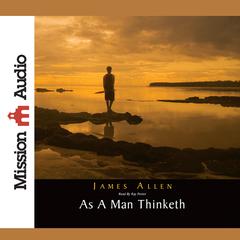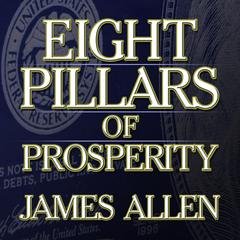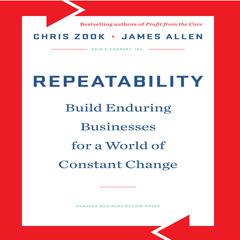 Play Audiobook Sample
Play Audiobook Sample
The Secrets of Success: Nine Self-Help Classics That Have Changed the Lives of Millions Audiobook
 Play Audiobook Sample
Play Audiobook Sample
Quick Stats About this Audiobook
Total Audiobook Chapters:
Longest Chapter Length:
Shortest Chapter Length:
Average Chapter Length:
Audiobooks by this Author:
Publisher Description
THE SCIENCE OF GETTING RICH by Wallace D. Wattles. You deserve to be rich, and this revolutionary primer on prosperity consciousness that has been enriching millions since it was first published in 1910. Wattles takes the mystery out of prosperity and describes the "exact science" of achieving financial success through creative thought. Named one of the all-time best business books by Brian Tracy! ACRES OF DIAMONDS by Dr. Russell H. Conwell. Based on a lecture that pastor Conwell delivered thousands of times, this 1921 bestseller has taught generations that the fortunes we seek are often in our own backyards-if we are willing and able to recognize them. Also named one of Brian Tracy's all-time best business books! THE MAGIC STORY by Frederic Van Rensselaer Dey. A mysterious fable-within-a-story, this simple tale of one man's transformation caused a sensation when it was published in Success magazine in 1900; it endures as an inspiring parable of perseverance and possibility that speaks to the seeker and striver in all of us. THE GREATEST THING IN THE WORLD by Henry Drummond. A Scottish evangelist in the late 19th century, Drummond is best remembered for this 1880 meditation on the empowering message of Corinthians, as timeless as it is life-affirming. A MESSAGE TO GARCIA by Elbert Hubbard. From a foreign correspondent and positive-thinking pioneer, this 1899 parable of wartime heroism imparts a powerful lesson on the benefits of taking initiative and responsibility in work and in life. THE MAJESTY OF CALMNESS by William George Jordan. First published in 1900, this meditation on the importance of mindfulness and stress management may sound ahead of its time, but the need to slow down is eternal. CHARACTER BUILDING THOUGHT POWER by Ralph Waldo Trine. A landmark in the New Thought movement that spawned much of the 20th century's self-help writing, this A TREASURY OF TIMELESS SELF-HELP . FROM THE PIONEERS OF PERSONAL DEVELOPMENT 1899 classic inspires us to create the healthy habits we need to develop the effective character we want. Life-changing wisdom never goes out of style! These eight classic works have truly stood the test of time, selling tens of millions of copies and remaining in constant demand; now THE SECRETS OF SUCCESS, a one-of-a-kind anthology of achievement, reveals why they are every bit as inspiring as they were a century ago. Here are the masterpieces of success and motivation that have influenced and earned the praise of Brian Tracy, Tony Robbins, Denis Waitley and many other self-help giants. Listen to such landmark books as The Science of Getting Rich, As a Man Thinketh and The Magic Story and you will believe you are truly hearing the secrets of the masters, speaking to you from a hundred years ago; reflect on the messages of Acres of Diamonds, The Majesty of Calmness and The Greatest Thing in the World and you will feel equipped to master the challenges of modern life with the wisdom of the ages. The priceless lessons imparted by these eight unabridged books will help you: Change your life by changing your thoughts; Attract the prosperity you deserve; Appreciate the opportunities that await you; Live true to the values most precious to you; Manage stress and self-defeating impulses that hold you back; Make the contribution to the world that only you can make-and enjoy the abundance you'll receive in return. The gift of greatness can be yours. Bring THE SECRETS OF SUCCESS into your life, or share them with someone you love, to turn yesterday's priceless wisdom into tomorrow's boundless rewards.
Download and start listening now!
The Secrets of Success Listener Reviews
-
" Some of the tips are helpful,, however being that it is much older it can be very difficult to follow. "
— Hard, 10/15/2012
About the Authors
James Allen (1864–1912) was a philosophical writer born in Leicester, England. He wrote numerous spiritual and inspirational books, including From Passion to Peace and The Eight Pillars of Prosperity. He is considered a pioneer of the self-help movement. His best-known work, As a Man Thinketh, has been in print since its publication in 1902.
Russell Herman Conwell (1843–1925) was a Baptist minister, orator, philanthropist, lawyer, and writer. He was the founder and first president of Temple University in Philadelphia and is the author of Acres of Diamonds.
Henry Drummond (1851–1897), Scottish theologian and biologist was born at Stirling. He studied at Edinburgh, and in 1884 he became professor of Natural Science at the Free Church College in Glasgow. He traveled in the Rocky Mountains, Central Africa, Japan, Australia, etc. Works include Natural Law in the Spiritual World, The Ascent of Man, and Tropical Africa.
Elbert Green Hubbard (1856–1915) was an American writer, publisher, artist, and philosopher. Raised in Hudson, Illinois, he met early success as a traveling salesman with the Larkin soap company. Hubbard is known as the founder of the Roycroft artisan community in East Aurora, New York, an influential exponent of the Arts and Crafts movement. Among his many publications were the nine-volume work Little Journeys to the Homes of the Great and the short story A Message to Garcia.
William George Jordan (1864–1928) was an American editor and essayist. He graduated from the City College of New York and began his literary career as editor of Book Chat in 1884. He later went on to become the managing editor of Current Literature and the Ladies Home Journal, after which he edited the Saturday Evening Post. Jordan also wrote a number of personal improvement and self-help books in the early 1900s, one of the most popular being The Majesty of Calmness. Some of his other works include Mental Training, The Kingship of Self-Control, The Power of Truth, and The Crown of Individuality.
Ralph Waldo Trine (1866–1958) was a philosopher, mystic, teacher, and one of the early mentors of the New Thought Movement. He was the author of many books, including In Tune with the Infinite, This Mystical Life of Ours, The Man Who Knew, Character-Building Thought Power, and The Land of Living Men, among others.
Wallace D. Wattles (1860–1911) was born in the United States in 1860, shortly before the Civil War. Later in life, he began his tireless study of the religious beliefs and philosophies of the world. It was through this relentless examination of such philosophers as Descartes, Hegel, and Ralph Waldo Emerson that he developed his own principles and successfully applied them to his life before he shared them with the world in his innovative 1910 book, The Science of Getting Rich. He died one year later. Wattles’ ideas have lived on to inspire future generations to greatness.






















![The Path of Prosperity [Russian Edition] Audibook, by James Allen](https://media.audiobookstore.com/c/a/ca8m/ca8m-square-240.jpg)
